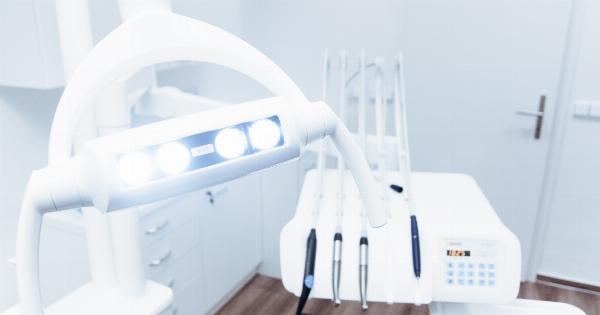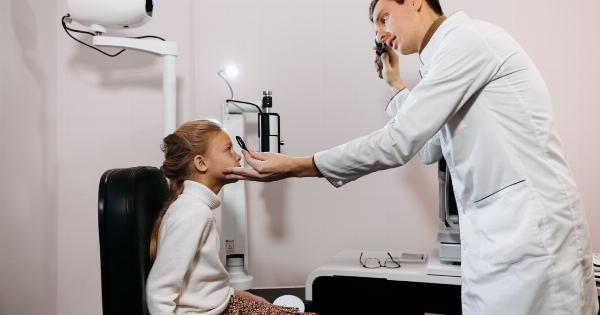In the field of nursing, there is a growing emphasis on patient-centered care and holistic approaches to healthcare. Health contracts and non-intervention nursing practices are two important aspects of this shift in healthcare delivery.
This article will explore the concept of health contracts and discuss the significance of non-intervention nursing practices in patient care.
What are Health Contracts?
Health contracts are agreements that are established between healthcare providers and patients to outline goals, interventions, and responsibilities in achieving and maintaining good health.
These contracts provide a clear framework for both patients and healthcare professionals to work together towards a common goal. Health contracts are often used in chronic disease management, mental health treatment, and lifestyle modifications.
The Benefits of Health Contracts
Health contracts have several benefits for both patients and healthcare providers. Firstly, they promote shared decision-making and active involvement of the patient in their own healthcare journey.
By setting realistic goals and outlining the necessary steps to achieve them, health contracts empower patients to take control of their health.
Secondly, health contracts improve communication and collaboration between patients and healthcare providers. By clearly defining expectations and responsibilities, both parties are on the same page regarding treatment plans and interventions.
This helps to minimize misunderstandings and ensures that the patient’s needs are met effectively.
Furthermore, health contracts enhance accountability. The written agreement holds both the healthcare provider and the patient accountable for their respective roles in achieving the agreed-upon health goals.
This accountability fosters a sense of commitment, leading to better adherence to treatment plans and improved patient outcomes.
Implementing Health Contracts
The implementation of health contracts requires effective communication and collaboration between healthcare providers and patients. It begins with a comprehensive assessment of the patient’s health status, needs, and preferences.
The healthcare provider then engages in a dialogue with the patient to establish personalized goals and interventions.
When developing health contracts, it is essential to ensure that goals are SMART – specific, measurable, achievable, realistic, and time-bound. This increases the likelihood of success and keeps both parties motivated.
The contract should also include steps or interventions that will be undertaken, along with potential barriers and strategies to overcome them.
Regular monitoring and evaluation of the contract’s progress are vital to ensure that the agreed-upon goals are being met. Adjustments can be made if necessary, based on the patient’s response and feedback.
Health contracts are not static and can be modified to adapt to changing circumstances and goals.
Non-Intervention Nursing Practices
Non-intervention nursing practices focus on providing care that respects and supports the body’s natural healing processes, while minimizing unnecessary interventions.
This approach recognizes that the human body has an innate ability to heal itself and seeks to facilitate that process.
The Philosophy Behind Non-Intervention Nursing
Non-intervention nursing practices are built on the principles of holism, patient autonomy, and respect for the individual.
The holistic view acknowledges the interconnectedness of the body, mind, and spirit, and aims to address all aspects of the patient’s well-being.
By honoring patient autonomy, non-intervention nursing practices prioritize the patient’s right to make informed decisions about their healthcare.
This approach recognizes that patients are experts in their own bodies and health experiences, and their perspectives should be valued in the care process.
In addition, non-intervention nursing practices emphasize the importance of respecting the individual’s physical and emotional boundaries.
Nurses who adopt this approach understand that touch, communication, and presence can have profound healing effects, and they aim to provide care that is sensitive and non-intrusive.
The Benefits of Non-Intervention Nursing
Non-intervention nursing practices offer several advantages for patients and healthcare providers. They promote a sense of empowerment and autonomy among patients, as they are actively involved in decision-making and have a voice in their own care.
This approach also contributes to improved patient outcomes. By respecting and supporting the body’s natural healing processes, non-intervention nursing practices minimize the risks of iatrogenic harm and unnecessary interventions.
This can lead to reduced healthcare costs and shorter recovery times.
Non-intervention nursing practices also foster a therapeutic nurse-patient relationship. The emphasis on open communication and patient-centered care helps build trust and rapport between the nurse and the patient.
This positive relationship can significantly impact the patient’s overall experience and satisfaction with their healthcare journey.
Incorporating Non-Intervention Nursing into Practice
To incorporate non-intervention nursing practices into their care delivery, nurses need to create a supportive environment that values patient autonomy and holistic care.
This requires ongoing education and training to develop the necessary skills and knowledge.
Effective communication with patients is essential in non-intervention nursing. Nurses should actively listen to patients, acknowledge their perspectives, and involve them in decision-making processes.
This helps to build trust and promote patient engagement in their own care.
Additionally, nurses can integrate complementary and alternative therapies into their practice, such as relaxation techniques, therapeutic touch, or guided imagery.
These interventions can support the body’s healing processes and enhance the overall well-being of patients.
Conclusion
Health contracts and non-intervention nursing practices are vital components of patient-centered care and holistic healthcare.
Health contracts facilitate shared decision-making and accountability, while non-intervention nursing practices respect and support the body’s natural healing processes. By implementing these approaches, healthcare providers can enhance patient outcomes and promote a holistic approach to healthcare.




























